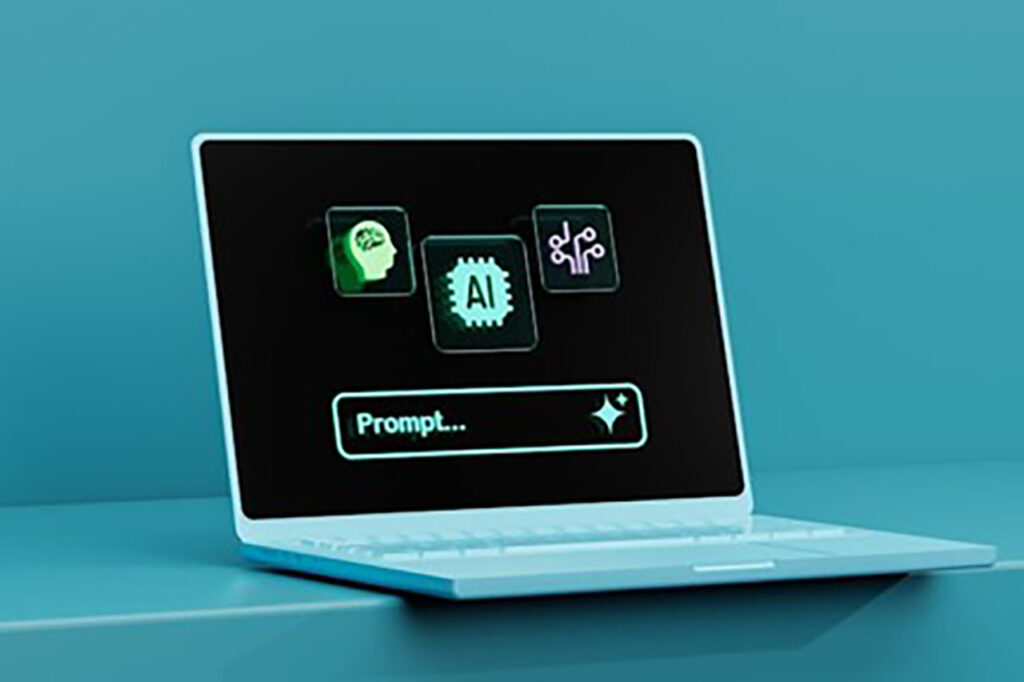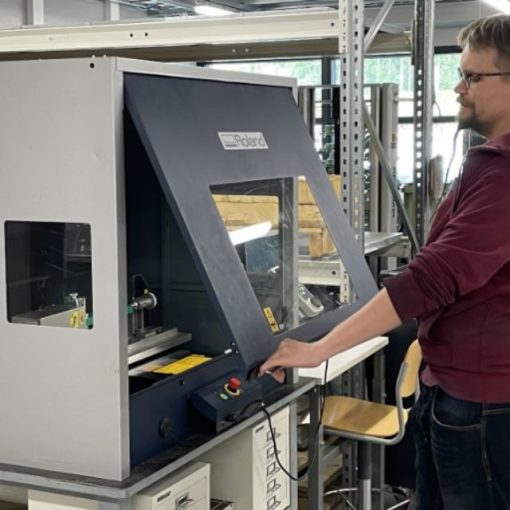In the last couple of years, people all over the world have started to get used to the convenience of AI. Easy use and fast, immediate answers to questions – it’s no wonder people are turning to AI more and more for answers instead of books or manual searching. A study by the Digital Education Council (2024) shows that students are already some of the biggest users of AI tools, using them regularly for tasks like writing, researching, and completing assignments. It’s not hard to understand why. When you’re overwhelmed with assignments and deadlines, or simply feeling unmotivated, it’s tempting to ask AI to do the thinking for you. It gets the job done quickly. However, this does not come without its cost. You end up paying for your quick, easy, answers eventually.
Convenience over critical thinking?
For her thesis, Raudsepp (2025) conducted a study that asked people how they feel about AI and its future role. One interesting thing she noticed was that many participants expressed concern about becoming too dependent on AI for thinking and decision-making. People shared that even though AI helps them, it sometimes feels like they are losing the ability to think critically or solve problems without it.
This worry about a growing reliance on technology to do our thinking for us isn’t a completely new phenomenon. Before AI, we had Google; before Google, we had libraries. Every new tool brings with it a new level of convenience, but also new concerns about how it might affect us in the long term. For example, Nicholas Carr (2010) in his book “The Shallows: What the Internet Is Doing to Our Brains” wrote about how the way we read, and think has changed since we stopped spending time in libraries with physical books and started relying more on quick online searches. In the book, he points out that while the internet gives us fast access to information, it also trains our brains to skim and jump from one thing to the next, making it harder to concentrate or reflect in the same way as before.
Overestimating AI
Now, with AI, similar concerns are coming up again. Several studies have already shown that the use of generative AI can affect our critical thinking skills. A recent study conducted by Microsoft (2025) found that people with lower confidence in their own abilities were most likely to over-trust AI, often relying on it without questioning the results. The same study also revealed that many users overestimate AI’s capabilities, which leads them to overlook the need for critical thinking altogether. Tasks seen as simple or trivial to users, some of which included things such as meeting summaries or social media posts were also more likely to be trusted to AI without much thought.
In her thesis, Raudsepp (2025) suggests exploring further how expanding usage of AI might affect our thinking, decision-making and creativity in the long term. There is no turning back, AI will become more and more common in everyday life. No doubt, it is important to understand how it is used, but even more interesting is how it might shape our behaviour and expectations in the future.

Reflection
It’s easy to get used to the speed and simplicity AI offers, but before relying on it too much, it’s important to learn how to use it properly. Most students already know that Wikipedia isn’t considered a reliable source because anyone can edit it and the origin of the information isn’t always clear. The same mindset should apply to AI.
The quickest and easiest answer isn’t always the right one. What happens when the tool we depend on is suddenly unavailable, or when we’re asked to explain our reasoning, but didn’t really do the thinking ourselves? Just like we are taught how to evaluate sources and write proper references, we now need to learn how to use AI responsibly and critically. In the end, AI should be a tool that supports our thinking, not one that replaces it. It’s up to us to stay actively involved in the process and take responsibility for our own work and decisions.
Authors
Keitren Raudsepp is an international business graduate with a BBA from LAB University of Applied Sciences. She is passionate about technology and curious about how AI will continue to change our lives in the future.
Sanna Kokkonen works as senior lecturer in LAB UAS Faculty of Business and Hospitality Management. She is passionate about thinking about her thinking.
References
Carr, N. 2010. The Shallows: What the Internet Is Doing to Our Brains. New York: W.W. Norton & Company
Digital Education Council. 2024. AI in education: usage trends among students. Cited 9 May 2025. Available at https://www.digitaleducationcouncil.com/post/digital-education-council-global-ai-student-survey-2024
Lee, H.P., Sarkar, A., Tankelevitch, L., Drosos, I., Rintel, S., Banks, R. & Wilson, N. 2025. The Impact of Generative AI on Critical Thinking: Self-Reported Reductions in Cognitive Effort and Confidence Effects From a Survey of Knowledge Workers. Microsoft Research. Cited 14 May 2025. Available at https://doi.org/10.1145/3706598.3713778
Oroni, P. 2024. A laptop computer sitting on top of a table. Unsplash. Cited 18 May 2025. Available at https://unsplash.com/photos/a-laptop-computer-sitting-on-top-of-a-table-jsuv3zadcFE
Raudsepp, K. 2025. The impact of AI on the future of digital advertising. Bachelor’s thesis. LAB University of Applied Sciences. Cited 4 Jun 2025. Available at https://urn.fi/URN:NBN:fi:amk-2025052114322




